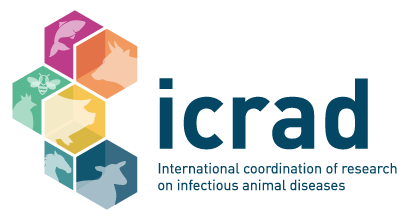International Coordination of Research on Infectious Animal Diseases (ICRAD) First Call: Editorial and Abstracts
Authors: Jens Nielsen and Others
GMPC TOP
2023.
vol. 3, Iss. 2
pp:1-13
Doi: https://doi.org/10.51585/gtop.2023.2.0034

Abstract:
The ICRAD ERA-NET launched its first call in 2020, with funding partners from twenty European countries. The aim was to foster a collaborative and interdisciplinary approach towards developing innovative instruments for the control and prevention of animal infectious diseases. Particularly, with a focus on creating vaccine and diagnostic technology platforms to enhance preparedness for major epidemic threats such as African swine fever and animal influenza. The first ICRAD call received significant support, totaling €17.4 million from partner countries alongside an additional €6.7 million top-up from the European Commission (EC). These funds were allocated to nineteen research project consortiums, consisting of researchers from across Europe. Through their collective efforts, these consortia have made remarkable progress in addressing various infectious disease risks faced by European animal health and the livestock industry. The following text encapsulates abstracts from eleven out of the nineteen projects that received funding through the first ICRAD research call. It’s noteworthy to observe that several of these projects are addressing pressing issues related to ongoing animal health outbreaks. For instance, three of these funded projects are dedicated to enhancing our comprehension of the African swine fever virus (ASFV) and fostering the development of a potential vaccine. Another project is honing its focus on avian influenza, with the objective of deciphering the factors contributing to increased virulence in low pathogenic avian influenza (LPAI) viruses. This could potentially enable us to better predict the severity of emerging avian influenza virus (AIV) strains. In addition, there are several other projects that align seamlessly with the overarching goals of ICRAD. These include but are not limited to, the development of innovative DNA vaccine technologies and the creation of diagnostic tools for a spectrum of pig diseases. Overall, we have funded a range of projects that align excellently with the overall goals of ICRAD, supporting innovative, cross-cutting research on animal health and welfare, with associated benefits for the environment and the economy. These projects represent significant strides in improving animal health, welfare, and food production throughout Europe. By fostering collaboration between partner institutes and bringing together experts from various countries and disciplines, these joint efforts can effectively combine knowledge, resources, and expertise to address complex challenges and threats. This coordination is crucial for identifying, preventing, and responding to emerging animal diseases that could not only endanger animal health but also have direct or indirect implications for human well-being. Moreover, this cross-border cooperation can yield more comprehensive research outcomes while developing innovative solutions and strategies for disease prevention and control. Ultimately, international scientific coordination on animal health showcased in the following abstracts demonstrates a strong commitment to cooperation while providing robust evidence to safeguard the health of animals, humans, and the environment. ICRAD, which organized this call and allocated grants to these projects is an ERA-NET, a co-funded project under the European Union’s Horizon 2020 Research and Innovation program.
Keywords:
ICRAD, ERA-NET, African swine fever virus, Avian influenza, DNA vaccine, Food production, Prevention and control, One-Health
Statistics:
Article Views: 1488
PDF Download: 71